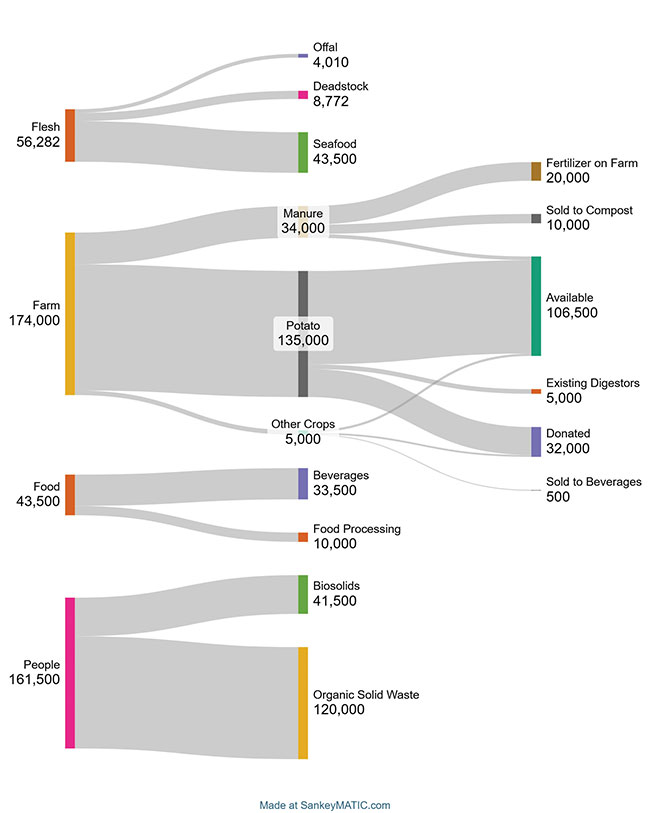
Editorial: Building up biogas
February 12, 2025
By Andrew Snook
New Brunswick preparing to grow this sector of the bioeconomy

Back when I initially joined the team at Canadian Biomass in 2015, one of my first trips was to attend the Atlantic Biorefinery Conference in
Edmundston, N.B., where I was given the opportunity to tour a variety of players in the province’s bioeconomy. One of the tours was LaForge Bioenvironmental’s commercial biogas production plant in Saint-André, N.B. The facility was operating a 1.6 MWh anaerobic digester. Fuelled by a combination of cow manure and organic waste from regional food processors, the anaerobic digester was converting the waste to electricity, heat and liquid organic fertilizer. I had never witnessed this type of system before, and was amazed to see how it was creating heat, energy and fertilizer from what amounted to waste products.
Fast-forward ten years, and the province is still working hard on building up the biogas sector.
Since 2023, research related to building up the province’s bioeconomy has been under the purview of ResearchNB, which signed a 10-year funding agreement with the Province of New Brunswick in 2024 and has an annual budget of about
$11 million that flows out to five priority sectors: health, energy, agriculture, forestry and oceans. As ResearchNB’s acting CEO Chris Dickie explained to me, “Bio is implicit across basically everything that we’re looking at here and ResearchNB.”
The team at ResearchNB (and previously at BioNB) has been working hard on research for the past three years to find ways for biogas to be profitable for farmers in the province, and looking at the different ways biogas production will benefit New Brunswick. One of the key steps in this process has been researching how much biomass tonnage is available in the province. Danielle Connell, business development manager for biogas at ResearchNB, told me that they are speaking to over 250 farmers and other active players, being very careful in how they measure available biomass to ensure there is no disruption to material currently going to feed livestock or active biogas projects. As Connell mentioned, “There’s enough biomass for everybody to win.”
Our chat also discussed all of the potential opportunities that could come from scaled up production of renewable natural gas, such as new jobs, energy production, and selling the RNG to interested parties.
Farmers throughout the province are interested in becoming biogas producers, and ResearchNB is doing the necessary research to find ways to make this a reality.
I, for one, am excited to see economic opportunities in the bioeconomy coming to the people of New Brunswick. •